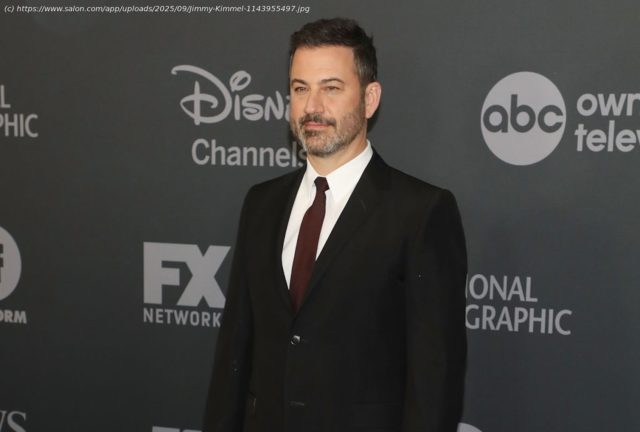Resistance through humor and public outrage still carries weight
Before late-night host Jimmy Kimmel returned to the air after he was suspended for what Disney, the owner of ABC, characterized as “ill-timed and thus insensitive” remarks about the killing of Charlie Kirk, President Donald Trump made it clear that the comedian was still at risk of government backlash. Trump took to Truth Social late Tuesday to condemn ABC’s decision and suggest that Kimmel’s return might amount to an “illegal campaign contribution” to the Democratic National Committee. He threatened to “test ABC out on this” — apparently alluding to a prior $16 million settlement paid by the network. “The White House was told by ABC that his Show was cancelled! Something happened between then and now,” the president complained.
“This show is not important,” Kimmel told his audience upon his return Tuesday. “What is important is that we get to live in a country that allows us to have a show like this.”
He continued: “Our freedom to speak is what I admire most about this country. And that’s something I’m embarrassed to say I took for granted until they pulled my friend Stephen [Colbert] off the air and tried to coerce the affiliates who run our show in the cities that you live in to take my show off the air.”
Millions of Americans were denied broadcast access to this important moment in TV history. When ABC announced that “Jimmy Kimmel Live!” would be reinstated, two of the largest station‑group owners — Nexstar Media Group and Sinclair Broadcast Group — declared that their affiliated ABC stations would not air the show upon its return. Together, the companies own 70 ABC affiliates covering over 23% of U.S. households. Sinclair demanded a personal apology from Kimmel and a donation to Kirk’s family before reconsidering its position. In turn, some free speech proponents are now turning their attention to boycotting advertisers who buy ads on Sinclair and Nexstar.
“We can do this the easy way or the hard way,” Federal Communications Commission Chairman Brendan Carr threatened one week ago. His tactics directly mirrored those he laid out as a contributor to Project 2025: Using informal pressure backed by license review authority to guide content decisions without needing formal rulemaking.
Start
United States
USA — Science “That backfired bigly”: Kimmel’s return is a defeat for Project 2025






